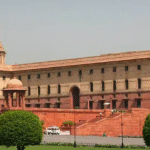Jagdeep Dhankhar Resignation
Jagdeep Dhankhar Resignation: In a surprising political twist, Vice President Jagdeep Dhankhar resigned on the first day of the Parliament session. As a result, his exit has sparked a wave of speculation about the underlying reasons and its broader political impact.

Image: Times Now
Shock Exit: Vice President Jagdeep Dhankhar Resigns Amid Political Buzz
Resignation on First Day of Parliament Session
On the very first day of the monsoon session of Parliament, Vice President Jagdeep Dhankhar stunned the nation by announcing his resignation. Although his decision was unexpected, it did not come without possible context. Many believe tensions had been building behind closed doors.
Early Monday morning, Dhankhar submitted his resignation letter directly to the President. Consequently, lawmakers and senior officials were left reeling from the news.
What Triggered the Shock Exit?
While Dhankhar has not publicly explained his reasons, several reports suggest internal conflicts may have played a role. Notably, his increasing dissatisfaction with executive interference in parliamentary proceedings has been a matter of public record.
Furthermore, sources indicate that Dhankhar grew frustrated with how legislative matters were being handled, especially regarding procedural autonomy. In addition, recent confrontations in the Rajya Sabha might have pushed him to the brink.
Political Reactions and Opposition’s Take
Naturally, the opposition wasted no time in responding. Congress and other key parties labeled the resignation a “red flag” for democracy. Moreover, some leaders claimed it pointed to an internal power struggle within the government.
Meanwhile, although the BJP has yet to issue a full statement, senior ministers have acknowledged Dhankhar’s service. They also stated that his departure was “personal” and should not be politicized. Nevertheless, public interest in the real reasons continues to grow.
Read More..- Kerala CPM Icon V.S. Achuthanandan Passes Away at 101
What Happens Next?
According to parliamentary protocol, the Deputy Chairman of Rajya Sabha will assume responsibilities temporarily. Until a formal election is held, the post of Vice President will remain vacant. As a result, the government is expected to expedite the selection process to maintain institutional balance.
Additionally, political analysts predict that Dhankhar’s future actions—particularly if he chooses to speak out—could lead to major shifts in India’s political landscape. Therefore, many are closely watching his next move.













